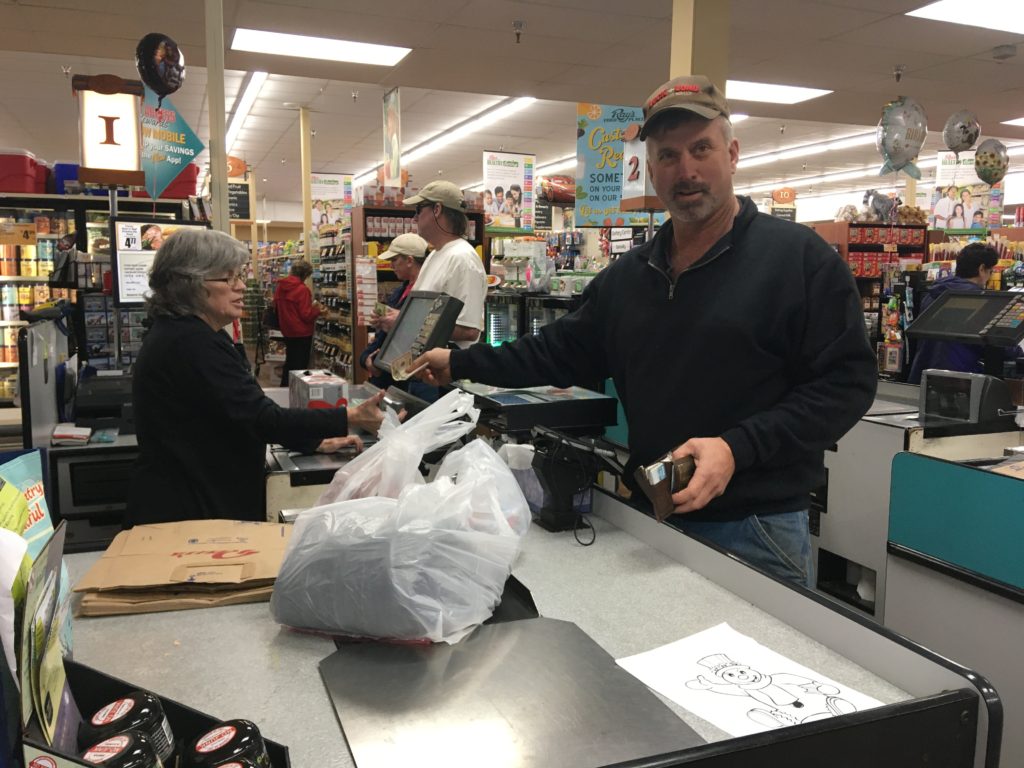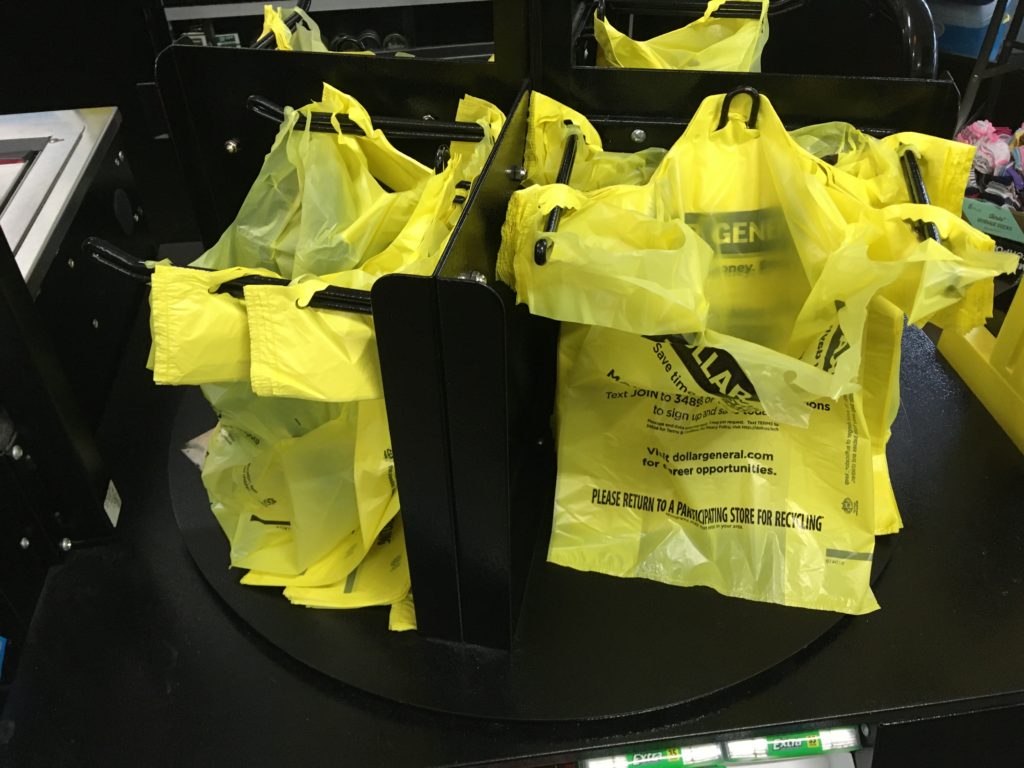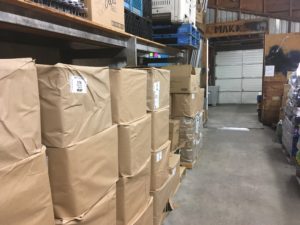
By DANA TIMS/YachatsNews.com
Yachats residents are joining all Oregonians this week in figuring out how to navigate a new statewide ban on single-use plastic bags.
But from the looks of things, the task shouldn’t be too daunting.
That’s due, in no small part, because Lincoln County residents who shop in Newport are already familiar with that city’s own plastic-bag ban, which has been in effect since July. Thirteen other cities – ranging from Corvallis to Ashland to Eugene and Portland – also had their own bans on single-use plastic bags before the state law went into effect Wednesday.
“We’ve all had lots of preparation,’’ said Debi Dazzo, manager at Yachats’ Dollar General store. “We ran out of plastic bags for half a day not long ago and people were fine with it.”
The new statewide ban prohibits retailers and restaurants from providing plastic bags at checkout counters. Most will now offer paper bags, instead, but customers will be required to pay at least five cents to get them.
Businesses that ignore the ban could be subject to a fine of up to $250.
The law doesn’t apply to plastic bags used for meats, produce or bulk items. And restaurants can still provide paper bags at no cost.
The Oregon Legislature passed the ban last April. Gov. Kate Brown signed the bill into law in June, making Oregon the fourth state in the country to ban single-use plastic bags.
The Yachats City Council briefly considered passing its own ban early in 2019. That effort was shelved once the state began crafting its ban.
Some stores got early start
Scott Gay, manager at C&K Market in Yachats, said the store is alone among the Medford-based chain’s outlets in never offering plastic bags.
The company dropped plastic altogether about four years ago, he said, opting for paper bags, instead. Ray’s Food Place in Waldport, also owned by C&K, was alone in reinstating plastic bags, due largely to customer complaints.

Most of those were lodged by non-area residents who traveled to the coast unaware of the lack of plastic.
“It’s the coast, where things get wet,” Gay said. “A lot of people still like their plastic bags.”
Ban advocates cite the role plastic bags play in waterway pollution. Garbage haulers joined that chorus, noting that plastic bags improperly put into recycling bins ended up choking recycling machines.
“Garbage guys don’t like them,’’ said Chuck Lerwick, operations manager at Dahl Disposal which services the Yachats and Waldport areas. “When you dump a can in, the bags fluff out and end up sticking in trees and everywhere.”
Haulers banded together months ago in an effort to educate the public about the problem, Lerwick said. From what he can tell, it’s working.
“Consumers are definitely better educated,” he added. “Our people have seen the results in the materials we’re collecting.”

Changes in consumer behavior are evident elsewhere, as well.
Workers at the Grocery Outlet Bargain Market in Newport, for instance, got considerable pushback from customers right after the city’s plastic-bag ban went into effect. The store countered that by initially offering cardboard boxes to shoppers who either didn’t want to pay 10 cents for a paper bag or showed up without their own reusable bags.
“We hardly ever get complaints now because people have just adapted to the change,” said Virginia Soto, the store’s manager. “It’s been a very smooth transition.”
Even in terms of the paper bags now available, Soto has seen a change in the months since Newport’s plastic ban took effect.
“We were selling an average of about 150 paper bags a day at first,” she said. “Now, that’s dropped to 50 to 60 bags a day. It’s just not that big a deal anymore.”
Will their be a shortage of paper?
What remains to be seen, however, is whether Oregon’s new plastic-bag ban may have the unintended consequence of causing a statewide shortage of the paper bags meant to replace them.
Some grocers are already seeing that shortage come into play.
“When the city’s ban was ready to take effect, I was already ramping up to go away from plastic bags,” said Lyle Mattson, manager of J.C. Market Thriftway in Newport. “My paper-bag supplier immediately said there was going to be an issue. And that was just due to the several Oregon cities that had passed plastic bans. I asked him, what’s going to happen in January, when this applies to the whole state? He just didn’t know.”

The advent of plastic bags some years ago prompted companies making paper bags to drop that line entirely, Mattson said. Now, a pending shortage of paper bags is likely to force retailers to consider hiking the price beyond the five cents required by the state’s new law.
In Mattson’s case, he responded months ago by buying two large pallets of paper bags and storing them in his back room. He also scoured national and international markets for inexpensive reusable bags, which he also stored away.
So far, public reaction to the plastic ban has been all over the map, he said.
“I’ve had people thank us for getting rid of plastic, only to have the next customer swear at me for charging five cents for a paper bag,” Mattson said. “I guess we’ll just have to see where it goes from here.”
– – – – – – – –
Freelance writer Dana Tims can be reached at DanaTims24@gmail.com


